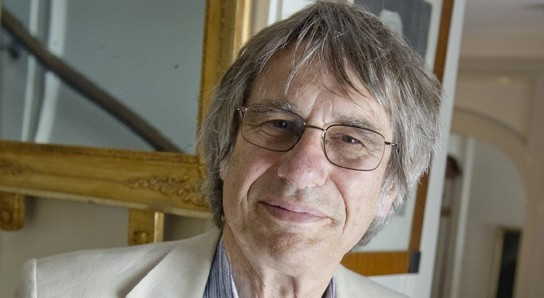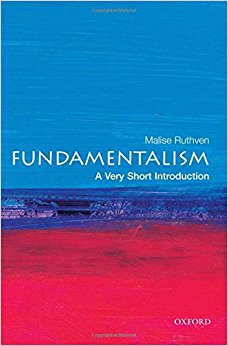Fundamentalism Summary
4 min read ⌚
 A Very Short Introduction
A Very Short Introduction
Fundamentalism is a phenomenon with a number of variations.
It can be an essential part of the ruling of a country.
Whether you like that or not, you will love Malise Ruthven’s book.
Who Should Read “Fundamentalism”? And Why?
Individuals interested in fundamentalism, and those who don’t quite get what fundamentalism is all about will find this book pretty incisive.
What’s more, if you thought that feminism and fundamentalism have nothing in common, and in no way influence each other, you have another think coming.
Grab this book and educate yourself a bit more on the topic.
About Malise Ruthven
 Malise Ruthven is an academic, writer, commentator, as well as a former scriptwriter. He earned his Ph.D. at Cambridge.
Malise Ruthven is an academic, writer, commentator, as well as a former scriptwriter. He earned his Ph.D. at Cambridge.
“Fundamentalism Summary”
Many believe that the fundamentalism, as a universal movement, is exclusively a religious thing. Fundamentalism means that you are devoted to the elementary principles of any subject of interest. So, it’s obviously not just connected with religion but with other disciplines too.
Now let’s see how it all started.
It all began at the beginning of the 20th century when brothers Milton and Lyman Stewart gave a harsh criticism of Darwin’s theory of the evolution of species by natural selection.
As they were sticking strictly to the Bible’s texts, they couldn’t accept his theory. So, they introduced this term to the public by issuing a booklet named “The Fundamentals” in which they talked against him.
About twenty years later, this term was used in connection with the Islam, criticizing the judgments of Saudi Arabia’s King regarding the public relations between men and women.
According to a scrutiny made in the 80s, three-quarters of Americans rely on the belief that the Holy book contains God’s actual words.
The same thing happens with the Muslims. So, that’s why they don’t accept any change in the translation of the Koran. The problem with this is that they don’t take into consideration all of the aspects of the writing process of these books.
Given that the States were the first to accept religious diversity, it’s not strange to see divisions in people’s believes, even though it was the Protestants who established this country. Despite this variety, religion is vital for them, and usually, it is crucial for politicians.
This opposes entirely to Europe’s countries where people are not so much into religion. However, Catholicism remains present in people’s lives.
Nowadays fundamentalism is used to oppose the non-spiritual people or as a response to the modern world.
Looking closer to other religions, we’ll see that in every religion there are elements of the fundamentalism. That’s because every religion is built on specific beliefs and people stick strictly to them.
If we compare fundamentalists and traditionalists, there are apparent differences. However, they have one thing in common-they both fight against Darwinism and the misinterpretation of the Bible.
It’s clear that there have always been differences between men and women. Women’s morality and their sexuality were some of the most treated questions in religious terms.
But, there is more.
According to many convictions, such as the example with the sati practice in India, it was up to the women to sacrifice themselves after their husbands’ deaths to show their dedication. All of this resulted in women changing their religion.
Fundamentalism became even more dominant when it was put in connection with the nationalists. The reason? Gaining points in politics. That’s because many support the belief that religious power is much more powerful than the political one.
This happens mostly in countries where the religion has a significant influence on people’s lives such as the States, India, many Muslim countries, etc. Unfortunately, generally, this misuse of religion for political purposes results in taking violent actions. So, where is God in all of this? Does he approve actions like these?
Key Lessons from “Fundamentalism”
1. Religion has a prominent role in Americans’ lives
2. How religion treats women and their rights
3. Nationalism makes fundamentalism more powerful
Religion has a prominent role in Americans’ lives
Given that 80% of the population in America is convinced that the Bible’s texts are God’s actual words, we must admit that religion is fundamental to them.
When it comes to religion, they are not very strict regarding people’s beliefs, and that’s why they have allowed pluralism. This opposes to the countries in Europe, where usually there is only one religion that dominates, but on the other hand, people are not so into it.
How religion threatens women and their rights
From ancient times women have been seen as being less than men. Their decency has always been questioned, and many religious people wanted to put women’s behavior under their control. Because of that, very often they had to prove their faithfulness by sacrificing themselves.
Wanting for their rights to be equal with those of the men, many women got involved in other religious movements, which oftentimes turned out to be the right decision to be made.
Nationalism makes fundamentalism more powerful
We all know that patriotism is quite present in people’s lives, just like religion does. So, if you put the love for your country and God together, you get the most powerful movement ever.
For politicians, these two components are crucial. They mix some religious words in their speeches to show how much they care about their country and the people, just to gain more votes. Smart, right?
Like this summary? We’d Like to invite you to download our free 12 min app, for more amazing summaries and audiobooks.
“Fundamentalism” Quotes
Fundamentalism’ now encompasses many types of activity, not all of them religious. Share on X At the borders of the semantic field it now occupies, the word ‘fundamentalism’ strays into extremism, sectarianism, doctrinairism, ideological purism. Share on X For the activist fundamentalist (as distinct from the passive traditionalist), the quest for salvation cannot be realized by withdrawing into a cultural enclave. Share on X Religious pluralism is an inescapable feature of modernity. Share on X Changes that have been promoted and welcomed by atheists, feminists, racial minorities and liberals have fundamentally altered the moral, social and political culture of America, and moved it away from the standards and practices that… Share on XOur Critical Review
“Fundamentalism” may broaden your knowledge of fundamentalism and the concepts related to it, but at times it uses it in quite broad terms. The book should be somewhat more concise at certain points.
Emir is the Head of Marketing at 12min. In his spare time, he loves to meditate and play soccer.


 A Very Short Introduction
A Very Short Introduction




